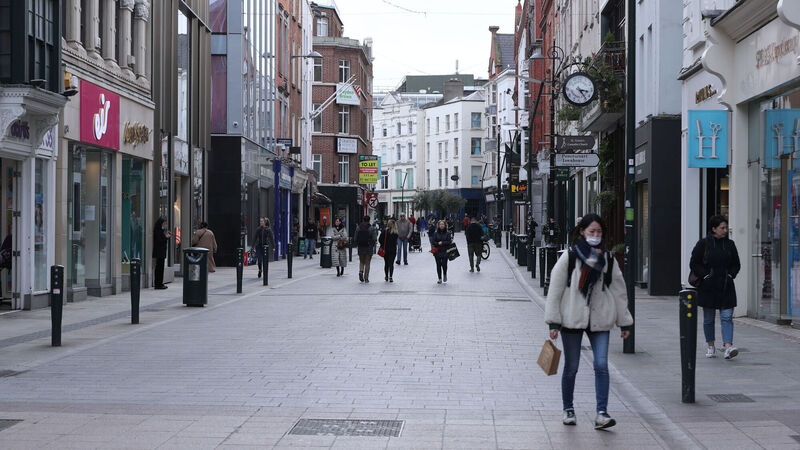Eamon Quinn: Varadkar had enormous tax resources to fight three economic crises since 2017

A deserted Grafton Street in Dublin, during Ireland's first coronavirus lockdown. Picture: Niall Carson/PA Wire
Try from €1.50 / week
SUBSCRIBELeo Varadkar, since securing the leadership of the governing Fine Gael party and his appointment as taoiseach, would at first sight appear to have been among the unluckiest leaders in Western Europe.
Since 2017, Mr Varadkar has battled the prospects of the hardest of hard Brexits that Tory extremists in Britain and a large slice of political unionism in the North had designed to nobble the economy across the island.
Already a subscriber? Sign in
You have reached your article limit.
Annual €130 €80
Best value
Monthly €12€6 / month
Introductory offers for new customers. Annual billed once for first year. Renews at €130. Monthly initial discount (first 3 months) billed monthly, then €12 a month. Ts&Cs apply.
CONNECT WITH US TODAY
Be the first to know the latest news and updates
Newsletter
News and analysis on business, money and jobs from Munster and beyond by our expert team of business writers.
Newsletter
News and analysis on business, money and jobs from Munster and beyond by our expert team of business writers.
Newsletter
Keep up with stories of the day with our lunchtime news wrap and important breaking news alerts.
Newsletter
Sign up to the best reads of the week from irishexaminer.com selected just for you.
Friday, February 13, 2026 - 5:00 PM
Friday, February 13, 2026 - 5:00 PM
Friday, February 13, 2026 - 4:00 PM
© Examiner Echo Group Limited